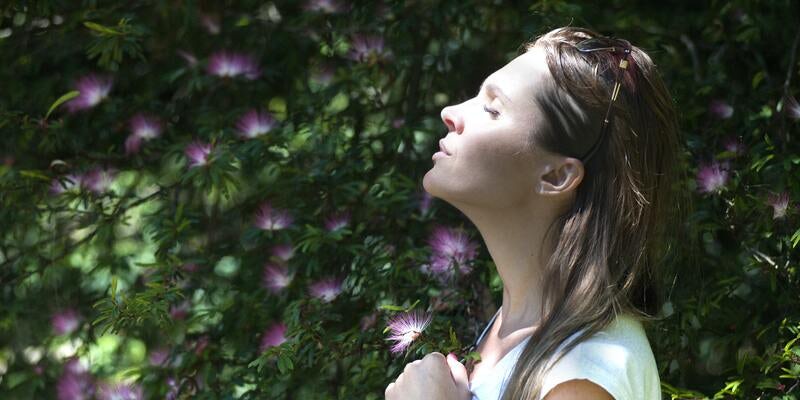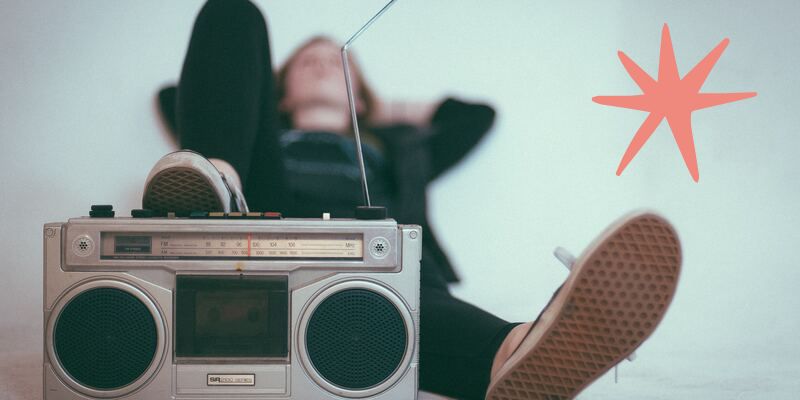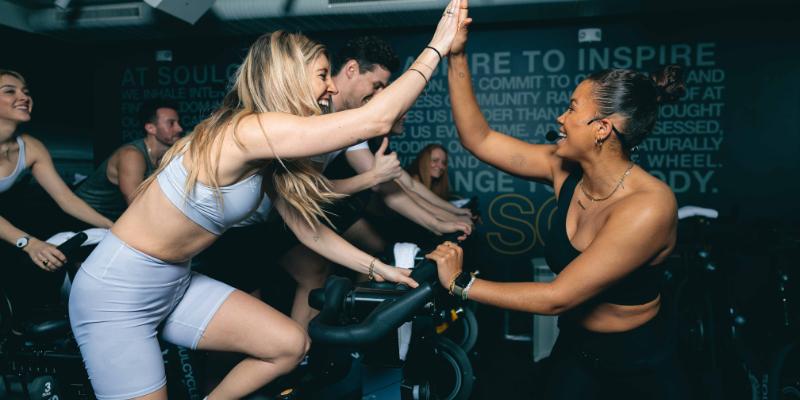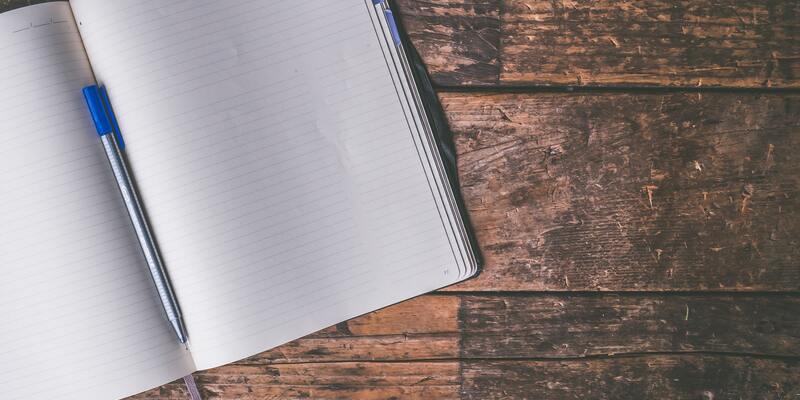As the seasons change and we look towards spring we often feel an extra boost of energy. This is partly because the light and warmth of spring influence our body's biological rhythms, in particular our delicate circadian rhythm.
We can take advantage of this boost to increase focus, productivity and balance in our work and personal lives. Especially if we create a spring time routine that takes into account our unique chronotype as well.
Let's take a closer look at how our circadian rhythm influences our ability to work and some routines that’ll help you spark flow and feel inspired whether you’re an early bird or a night owl.
“Every day of our lives, we are on the verge of making those slight changes that would make all the difference.”
What are biorhythms?
A biorhythm or biological rhythm is a bodily function regulated by an internal clock in our brains.
Any biorhythm that works on a 24-hour cycle is called a circadian rhythm. Circadian rhythms manage internal processes like our sleep-wake cycle, body temperature, hormone secretion and lots more. That feeling of being sleepy before you go to bed and how you can (sometimes) wake up at a regular(-ish) time without an alarm clock is your circadian rhythm at work.
If a biorhythm lasts longer than 24 hours it's called an infradian rhythm, an example of this would be the menstrual cycle. If it lasts less than 24 hours it's called an ultradian rhythm, like blinking or the speed of your heart rate.
Did you know babies haven’t developed all their biorhythms yet?
The reason a baby doesn’t initially have a regular sleep cycle like an adult is because they haven’t been exposed to light in the womb. As a species, we developed our circadian rhythm in response to the earth’s 24-hour rotation on its axis giving us light and dark.
If it took the planet an extra 6 hours to rotate we would have evolved to work on a 30 hours sleep cycle!
How does our circadian rhythm affect our ability to work
A master clock in the brain interprets cues like light and dark, temperature and diet to decide how awake and alert you need to be. Your brain then sends signals to certain gene codes in your cells, instructing them to build up proteins overnight and deplete them during the day.
Scientists believe when we release these proteins they control sensations like alertness, wakefulness and focus. When our circadian rhythms are disrupted, be it because of a late night, blue light, or oversleeping, it can lead to fatigue, difficulty concentrating, and other health problems.
“We are what we repeatedly do. Excellence, then, is not an act, but a habit.”
The standard adult circadian rhythm
As spring slowly awakens, our sunrises will start getting earlier. The earliest sunrise of 2023 will be on the 14th of June at 5.30 am. So it’s useful to know a standard adult circadian rhythm is in line with the sunrise.
Biologically most people’s bodies will start to wake up between 6 am and 8 am. We’ll go on to start our period of peak mental alertness a couple of hours later around 9 am or 10 am. This high cognitive capacity usually continues until around 1 pm, but is followed by the demotivating post-lunch early afternoon slump between 1 pm and 4 pm.
Yes, it’s not just eating too much at lunchtime that causes this slump, but a natural part of our circadian rhythm! So it’s not a bad idea to take a 20 minute afternoon catnap.
Between 5 pm and 8 pm, our muscles are at their strongest and our body temperature hits its warmest. From 9 pm onwards our body begins to secrete melatonin that makes us sleepy, and it’s helpful to stop looking at strong light or devices with screens to support this process.
For any parents out there remember it’s biologically harder for teenagers to get up early as their hormones shift their circadian cycles to prefer to get up later and stay up later.
But it’s not just our circadian rhythms and external cues like sunlight at play when it comes to finding a routine that works for us. We’re also subject to our own genetic predisposition in the form of chronotypes.
The four chronotypes and their springtime routine
If you’re a little lost about the difference between circadian rhythms and chronotypes don’t panic, they’re both useful tools for discovering how to feel your best.
A circadian rhythm is the biological process of drowsiness and alertness controlled by your hormones, genes and how much light you take in.
Chronotypes are tools you can use to help understand how your personal circadian rhythm works in conjunction with your everyday preferences. Things like spending a lot of time inside or working out late at night can all influence your biorhythms, and it’s useful to understand your own cycle if you want to optimize it this springtime.
Remember chronotypes aren’t an exact sleep science in the way circadian rhythms are, but they’re an interesting stimulus to design your springtime routine around.
The Bear, also known as the Reliable Raven
Wake up: 7–8 am
Most alert: 10–2 pm
Bedtime: 11 pm
Bears are the most common kind of chronotype with 55% of the population thought to have this kind. Bears tend to get an early start to their days, take a few hours to wake up then have the most energy from midmorning through to early afternoon.
Bears should strive for consistency in their sleep schedule and make sure to get plenty of rest. They should also focus on tasks that require more focus and attention in the morning when they have the most energy, but make an effort to ease themselves into the day rather than starting work immediately.
If you’re a Bear why not try waking up a little earlier this spring as the sun begins to rise, but compliment that with a new activity in your routine like a meditative breathwork session to ease yourself into the day.
🗨️ Breathwork is an excellent way to begin your day
It can help us to center ourselves, become more mindful, and lower stress levels. FLOWN Airflow provides a variety of breathing practices to help you make the most of your morning.
The Lion, also known as the Early Bird
Wake up: 6–7 am
Most alert: 8 am–12 pm
Bedtime: 10 pm
If you’ve ever been told the phrase the early bird catches the worm when out jogging at 5am, you’re probably a lion. The Lion chronotype is characterized by a tendency to be naturally energized first thing in the morning and have a big dip in energy in the afternoon.
Whereas Bears take a few hours to wake up, Lions find waking up easy and are usually raring to get going as soon as possible. If you think you’re a lion make sure you focus on important tasks in the morning, use the afternoon for more menial tasks and maybe even consider taking a cat nap between 2 pm - 4 pm.
Lions should also make sure to get plenty of rest, as they can lose the spring in their step in the morning if they don’t get to bed on time. This springtime why not try getting up and out on an awe walk first thing in the morning to awake the lion within.
The Wolf, also known as the Night Owl
Wake up: 7.30–8.30 am
Most alert: 5 pm–12 am
Bedtime: 12 am
Meanwhile, if you’ve ever found yourself hit with some serious inspiration at 7pm and just can’t quite make yourself leave the office till 9pm, then there’s a good chance you’re a Wolf.
The Wolf chronotype is the opposite of the Lion. Wolves are the night owls of chronotypes, and have their first burst of energy at midday and their second in the early evening.
Wolves should focus on tasks that require more creativity in the evening when their energy levels are the highest. Consider whether you can start a bit later in the day and give yourself time in the morning just to adjust to the business of waking up.
An early evening awe walk may be exactly what the doctor ordered for a Wolf looking to get inspired.
Discover the hidden benefits of walking
The hidden art of walking: how to procrastinate less
and produce more

The Dolphin, also known as the Permanently Exhausted Pigeon
Wake up: 6.30–7.30 am
Most alert: 10–12 pm
Bedtime: 12am
The Dolphin chronotype is characterized by a tendency to be productive in spurts throughout the day. Dolphins are often restless and have trouble sticking to a regular sleep schedule, like their namesake that actually sleeps with half their brain on!
Dolphins should focus on tasks that require more creativity throughout the day and use the time in between to take breaks and recharge. Unlike the Bear they struggle to stick to a regular sleep schedule and may even need to work through bouts of insomnia from time to time.
Finding a routine as a Dolphin may take a bit of experimenting, but by creating a routine and sticking to it you’ll train your circadian rhythm to be more robust and reliable.
You may not fit perfectly into one chronotype
But by reflecting on which types resonate with you and becoming more mindful of your circadian rhythm you will be able to craft the perfect sunrise (or not-so-sunrise) routine for yourself this spring. By taking advantage of the natural boost of energy that comes with springtime, we can maximize our focus.
Utilizing breathwork, awe walks, and good routines can help you make the most of this extra energy and help you reap the benefits of increased productivity this year.












